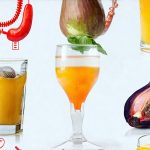Living with an overactive bladder (OAB) or interstitial cystitis (IC) can significantly impact daily life, often requiring careful attention to dietary choices. Many individuals find that certain foods and beverages exacerbate their symptoms – urgency, frequency, and discomfort – while others are much better tolerated. It’s not always about eliminating foods entirely but rather understanding how they might affect your bladder and tailoring your diet accordingly. This requires a period of self-observation and potentially working with a healthcare professional to identify personal triggers. The goal isn’t deprivation; it’s empowerment through mindful eating, allowing you to enjoy meals without fear of discomfort or disruption.
The concept of “bladder-friendly” foods is highly individualistic. What bothers one person may have no effect on another. However, generally speaking, light meals are preferred because they place less stress on the bladder and digestive system. Large, heavy meals can increase abdominal pressure, potentially leading to urgency. Similarly, certain ingredients – acidic fruits, spicy seasonings, caffeine, alcohol – are commonly known irritants for those with sensitive bladders. This article will explore some excellent light meal options and strategies for navigating dietary choices when dealing with bladder sensitivity, focusing on gentle nourishment rather than restrictive dieting. Remember that consistency and mindful eating are key to identifying what works best for you.
Gentle Proteins & Soothing Carbohydrates
Protein is essential for maintaining overall health, but certain types are easier on the bladder than others. Lean proteins like skinless chicken breast, turkey, or fish (baked or grilled – avoid fried) are generally well-tolerated. Plant-based protein sources such as tofu and lentils can also be excellent choices, provided they don’t cause bloating or gas for you personally. Pairing these proteins with soothing carbohydrates forms the basis of a light, bladder-friendly meal. Good carbohydrate options include:
- White rice (brown rice can sometimes be irritating due to its fiber content)
- Potatoes (avoid frying; boiled, mashed, or baked are better)
- Oatmeal (made with water rather than milk for some individuals)
- Gluten-free pasta
- Sweet potatoes
The key is to keep portions moderate and avoid overeating. Combining lean protein with a simple carbohydrate provides sustained energy without putting excessive strain on the bladder. Focus on preparation methods that minimize irritation – baking, steaming, or boiling are preferred over frying. Even seemingly harmless foods can cause issues for some, so pay attention to how your body responds. It’s also worth considering portion control as smaller meals are often easier to manage symptom-wise.
Many individuals with bladder sensitivities find that dairy can be a trigger, although this varies greatly. If you suspect dairy is an issue, experiment with lactose-free alternatives or eliminate it temporarily to see if your symptoms improve. Similarly, gluten sensitivity can contribute to inflammation and exacerbate bladder symptoms in some people. Exploring gluten-free options might prove beneficial if you suspect a connection. Ultimately, the best approach is one of mindful experimentation, guided by how your body reacts to different foods. If you’re looking for more structured meal ideas, consider exploring low-irritation meal options tailored specifically for bladder sensitivity.
Light Breakfast Options
Starting the day with a gentle breakfast sets a positive tone for bladder health. Avoid citrus juices, coffee, and strong teas as these are known irritants. Instead, consider:
- Oatmeal made with water and a touch of maple syrup (avoiding berries initially)
- A slice of white toast with a small amount of avocado
- Scrambled eggs (prepared simply, without spicy seasonings) with a side of mashed potatoes
- Gluten-free toast with a smear of almond butter.
These breakfasts are easy to digest and less likely to trigger urgency or discomfort. Remember to stay hydrated throughout the day with water but avoid drinking large amounts quickly. A gradual increase in fluid intake is generally better tolerated than chugging water. Listen to your body’s signals; if you feel fullness, stop drinking for a while.
Lunchtime Solutions for Sensitive Bladders
Lunch often presents a challenge because it’s frequently consumed away from home and convenience options can be limited. Planning ahead is crucial. Consider packing:
- A salad with grilled chicken or tofu (using bladder-friendly vegetables – see below)
- Leftovers from dinner, ensuring they are bladder-friendly
- A turkey sandwich on white bread with lettuce and a small amount of mayonnaise.
Avoid spicy condiments, tomatoes, and citrus fruits in your salads and sandwiches. Opt for mild seasonings instead. Water is the best beverage choice; avoid sugary drinks or caffeinated beverages. The goal is to maintain hydration without irritating the bladder. It’s also helpful to choose restaurants carefully when eating out, opting for places with customizable options that allow you to control ingredients.
Dinner – Keeping it Light & Nourishing
Dinner should be the lightest meal of the day. This allows your bladder a longer period of rest during sleep. Good dinner choices include:
- Baked fish (cod or haddock are good options) with steamed potatoes and green beans
- Chicken breast grilled with white rice and a side of carrots
- A lentil soup made with mild seasonings and served with gluten-free bread.
Avoid heavily spiced foods, acidic sauces, and large portions. Consider using herbs like parsley or dill to add flavor without irritating the bladder. Before bed, avoid drinking excessive amounts of fluids to minimize nighttime trips to the bathroom. A small glass of water is okay if needed, but avoid caffeine, alcohol, and sugary drinks. The objective is a calm digestive system and minimal pressure on the bladder during sleep. To further support your evening routine, explore calming evening routines designed for sensitive bladder cases.
It’s crucial to remember that these suggestions are starting points. Individual tolerance varies significantly. Maintaining a food diary can be incredibly helpful in identifying your specific triggers and tailoring your diet accordingly. Be patient with yourself and celebrate small victories along the way. For those recovering from urological procedures, low-residue meals can be particularly helpful during the healing process.





















